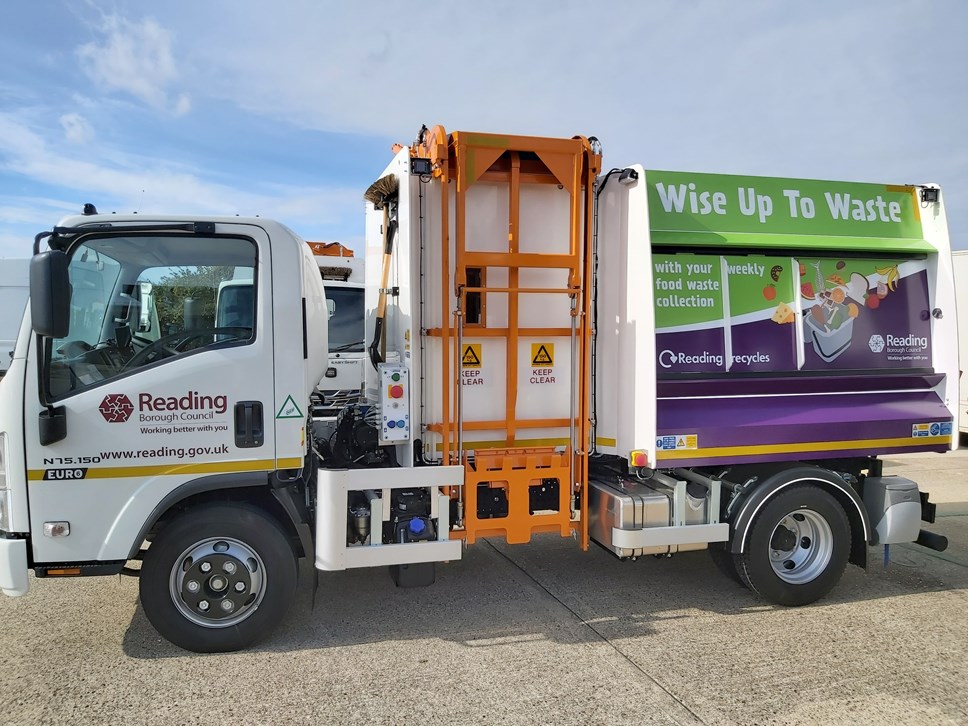
Your chance to name one of Reading’s food waste collection trucks
- Enter your food waste truck name suggestion online for a chance to see it printed on a vehicle collecting in Reading
- Reading's food waste trucks are collecting over 2kg of food waste weekly on average from participating households
- Food waste recycling reduces waste going to landfill, saves money, and is turned into fertiliser and electricity
RESIDENTS are being given the chance to name Reading’s food waste collection trucks, with a fun competition launched today.
Reading’s six dedicated food waste collection vehicles have been taking away the considerable amount of over 2kg of food waste on average per participating household each week since food waste recycling started in the borough in February 2021. Now it is time for residents to put their thinking caps on to come up with some original names for them.
With Reading’s schoolchildren being given the opportunity to name five of them as part of an educational campaign about the benefits of food waste recycling, that leaves one truck for Reading’s adults to come up with a clever – but clean! – name for.
All you need to do is go online at www.reading.gov.uk/foodtruckname and enter your details and name suggestion. Entries close on Friday 1 July with the winners notified by Friday 8 July. The winning name will be chosen by Karen Rowland, Reading’s Lead Councillor for Environmental Services and Community Safety, and printed on the vehicle for the whole of Reading to see.
Reading’s food waste recycling collections introduced last year mean that plate scrapings, stale bread, mouldy food, tea and coffee bags, meat and fish bones and everything food, except for packaging, can now be recycled instead of being sent to landfill.
With up to 41% of the weight in household waste collections being food before the new service began, it has helped get Reading’s recycling rate up from 35% to over 50%. Recycled food waste is then turned into fertiliser for farming, and electricity to power homes.
It also meant that residents engaging with the scheme were able to scale back on waste sent to landfill, transitioning from 240 litre grey bins that were replaced by smaller black 140 litre bins to encourage residents to recycle everything that they can.
Cllr Karen Rowland, Reading’s Lead Member for Environmental Services and Community Safety, said:
“This is a fun way to reward those residents who have really taken to food waste recycling by letting them get creative to name the trucks they see on the street supporting their recycling efforts. By engaging with the scheme since it was introduced last year, residents have helped stop food waste going to landfill where it rots and releases methane, a harmful greenhouse gas. Instead participants have so far helped to divert over 7,600 tonnes of food waste to be recycled, which is being turned into fertiliser for farming, and electricity to power homes.”
The food waste scheme has added to the range of recycling options available in Reading, including mixed recycling, new free bulky waste collections, garden waste subscriptions, the re3 recycling centre in Island Road and many bottle and textile banks around the Borough.
Residents who wish to recycle more can always order additional red recycling bins, for plastic bottles and trays, paper, card, tins and cans, free of charge here.
